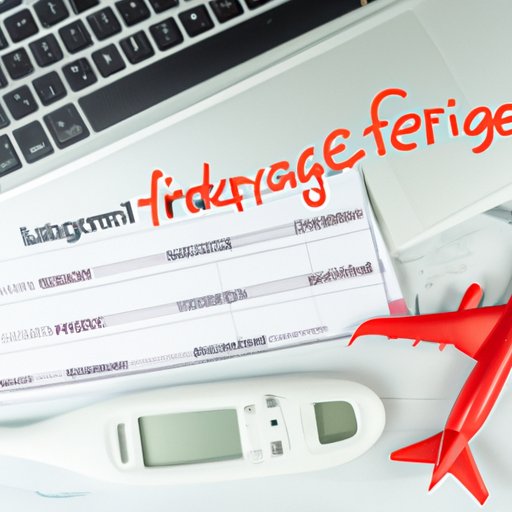
I. Introduction
Expecting mothers who are planning to fly may feel anxious about the potential health risks and discomfort associated with air travel. However, with proper preparation and knowledge, air travel can be enjoyable and safe even during pregnancy. This article aims to guide pregnant women through the process of air travel with tips to mitigate health risks, ensure comfort, and deal with emotional and physical challenges.
II. Guidelines by airline companies
It is highly recommended to check the policies of different airline companies before booking the flight. Generally, most airlines permit pregnant women to fly until 36 weeks of pregnancy, but restrictions vary according to the specific airline’s policy. Some airlines require a medical certificate if the expecting mother’s pregnancy is beyond 28 weeks, while others prohibit travel during the first or third trimester altogether. It is important to check with the airline and consult with a healthcare provider before booking the flight to ensure that it is safe to fly.
III. Health Risks
Flying while pregnant can pose health risks such as blood clots, dehydration, and increased radiation exposure. Pregnant women also have a higher risk of experiencing nausea, fatigue, and dizziness. As a precaution, it is recommended to obtain medical clearance from the healthcare provider before flying. Wearing compression stockings and staying hydrated can help mitigate health risks. Requesting an aisle seat can make it easier for a pregnant woman to get up and walk around the cabin and access the restroom as often as needed.
IV. Tips for Comfort
Pregnant women should be comfortable on their flights, and there are several ways to achieve this. Comfortable clothing should be chosen, such as loose-fitting clothes and comfortable shoes. Bringing extra pillows, choosing hygienic restroom options, and staying hydrated with frequent sips of water can keep a pregnant woman comfortable throughout the flight.
V. Emotional Preparation
Traveling while pregnant can be an emotional experience, and pregnant women should mentally prepare for the flight. This may include choosing a trusted companion to travel with and communicating any special needs with the airline crew in advance. A pregnant woman’s comfort should be a priority during the flight, and communicating expectations can help reduce anxiety and make the experience more enjoyable.
VI. Dealing with Jet-Lag
Jet-lag can be a challenge for anyone, but it is especially tough for a pregnant woman. Symptoms like fatigue, constipation, and headaches can be severe for pregnant women. To mitigate symptoms, it is essential to stay hydrated, walk around frequently, and get plenty of rest throughout the journey.
VII. Preparing for the Trip
Packing is a crucial part of preparing for any air travel, especially during pregnancy. Make sure all essential documents are in place, such as insurance coverage, medical clearance, and prescription medications, if required. Pack comfortable clothing, skincare items, and healthy snacks for the journey.
VIII. Conclusion
Air travel during pregnancy can be challenging, but with the right preparation and knowledge, it can also be an exciting experience. Checking the guidelines of airline companies, mitigating health risks, ensuring comfort, and mental preparation can help make the journey smooth and enjoyable for a pregnant woman. With these tips, pregnant women can plan their air travel with confidence and embark on an unforgettable adventure.




